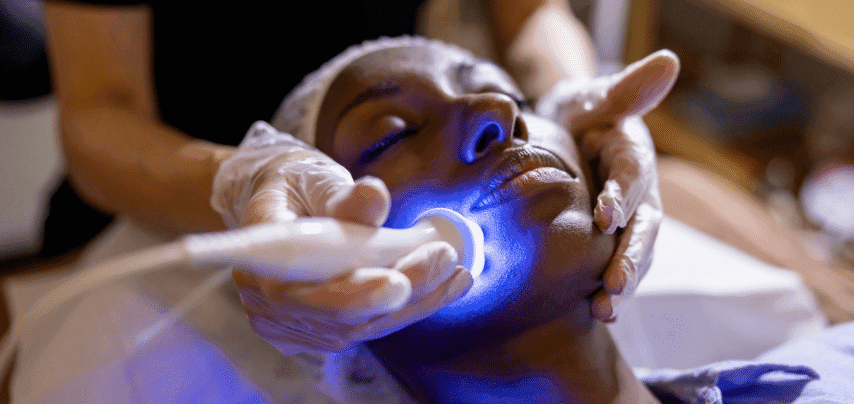Despite the best efforts of clinicians, managers, patient representatives, policy makers and regulators, fundamental concern about progress in improving patient safety in the UK continues to dominate the headlines. Consideration of the wider aspects of complaints, concerns and incident handling and oversight is in sharp national focus.
This focus was also the subject of a landmark report published earlier this summer by the Parliamentary and Health Service Ombudsman (PHSO), the official body for investigating unresolved complaints against the NHS.
The report’s wide ranging conclusions – particularly concerning compounded harm, have a broader relevance and application that go well beyond the NHS and are required reading for all health and care professionals striving to improve patient safety and reduce avoidable harm.
Broken trust
The PHSO report, Broken trust: making patient safety more than just a promise, analysed 22 complaint investigations it had carried out over the past three years where NHS patients had died due to avoidable errors. Set against a backdrop of an estimated 11,000 avoidable NHS deaths every year, a fragmented regulatory landscape and intensifying workforce pressures across the NHS, the report pulled few punches. It is unlikely to have made for comfortable reading for those NHS leaders who have read the report, or for the politicians and numerous regulatory bodies collectively responsible for delivering the stated Government and NHS priorities of improving patient safety and reducing avoidable harm to patients.
The review highlighted recurrent clinical failings as well as persistent failures to respond to patients and families in a compassionate way when they raise complaints. It concluded that, despite numerous reports, including those of inquiry after inquiry, there still remains a widely-recognised “implementation gap” – the disconnect between the proliferation of advice and guidance from the myriad of regulatory bodies charged with improving patient safety and the reality of frontline practice.
Whilst Broken trust focused on complaints involving NHS services, the themes it identified and the disconnect between what is known to be good practice and what is actually being carried out are all too familiar, and apply to all health and care providers.
The PHSO’s findings
By analysing investigated complaints into avoidable deaths, the PHSO identified two sets of findings. First, it reflected on the common themes that emerge when clinical failings have led to avoidable harm. Secondly, it looked at the additional harm – described as compounded harm – that happens when families, who are already grappling with the devastating consequences of losing a loved one, tried to understand what had happened but were met with “inadequate, defensive and insensitive responses” from those concerned.
Clinical failings
In analysing the direct causes of harm, the report identified four broad themes of clinical failings leading to avoidable death:
• failure to make the right diagnosis
• delays in providing treatment
• poor handovers between clinicians
• failure to listen to the concerns of patients or their families
Cited examples of poor clinical practice included repeated failures by junior staff to escalate for more senior or specialist input, failures to observe or monitor patients at regular enough intervals to recognise deteriorating health or new issues, and teams that were not working collaboratively, communicating effectively or sharing crucial information.
Compounded harm
While the PHSO acknowledged that complete elimination of clinical errors and omissions is unrealistic, it emphasised that it should always be possible to respond with compassion and in a way that shows learning and accountability when avoidable harm has happened. Sadly, these principles are not being upheld in practice, perpetuating compounded harm and squandering opportunities for health and care providers to learn from their mistakes and reduce the risk of complaints escalating into legal claims.
The PHSO identified the scenarios that are likely to contribute to compounded harm, as follows:
(i) Failure to be open and honest
For years, health and social care organisations have had a legal duty to be open and transparent with people using services and their families. The statutory duty of candour (DOC) has been a requirement for all CQC regulated Providers (whether providing NHS, Local Authority or privately funded care) for the best part of nine years. Equivalent professional duties apply to a wide number of health and care professionals.
The underlying principle is that, when something goes wrong in the provision of health and care services, patients and families have a right to receive a meaningful apology and explanations for what happened as soon as possible.
The PHSO report concluded that several investigated organisations lacked a proper understanding of DOC and had not properly equipped their staff to investigate and acknowledge what had gone wrong. This failure of transparency resulted in justifiable mistrust and worsened the pain and distress of families.
(ii) Lack of support to navigate systems in the aftermath of an incident
A recurrent theme was the lack of support for complainants who experienced difficulties in raising concerns. Insufficient information and inadequate access to complaints advocacy was a common experience.
(iii) Poor-quality investigations
The report was particularly critical of the quality of investigations into adverse incidents. The PHSO found an “ingrained defensiveness and lack of curiosity about the causes of harm, which is sadly still prevalent.” A number of the analysed investigations failed to provide clear, evidence-based explanations in response to concerns, provide reasons for their decisions, or consider the impact of any failings. In some cases, investigations failed to accept errors or acknowledge the extent of events. Furthermore, some investigations were not as thorough as they should be, and crucial parts were missed out.
The PHSO endorsed the increased flexibility that introduction of The Patient Safety Incident Response Framework (PSIRF), will deliver, and which is being rolled out across the NHS later this year, replacing the Serious Incident Framework. However, it expressed concerns about the gap between the welcome rhetoric in the PSIRF Guidance documents and some of the defensive behaviours it was seeing on the ground.
(iv) Failure to respond to complaints effectively
The report identified frequent examples of unacceptable and unreasonable delays in responding to complaints. Particular criticisms included failures to keep families informed and updated about the progress of their case, delays and failings in communication causing distress and frustration for complainants, and complaint handlers not being sufficiently empowered or trained to resolve a complaint.
(v) Inadequate apologies
The report again highlighted the importance of making a genuine apology (as required by DOC), emphasising that apologising is not an admission of fault or liability. However, despite this, the PHSO still sees organisations that fail to offer a clear and unreserved apology that shows they have understood the impact of those failings on the patient.
(vi) Unsatisfactory learning responses
Most complainants want assurances that something is being done to prevent the same mistakes from recurring. 93% of respondents said ensuring that others don’t face the same issues in the future as either very important or important in their decision to complain. Whilst the PHSO sees good examples of thorough action plans, it frequently sees less robust responses. This is described as a crucial missed opportunity for learning from avoidable harm and taking action to prevent it from happening again.
Recommendations: what can be done to close the gap between ambitious patient safety objectives and the reality of frontline practice?
The PHSO recognised the complexity of the identified issues and the lack of easy solutions. The report made several recommendations addressing the key question of how best to embed an honest, open culture in the healthcare system that supports patients and service users in obtaining the answers they deserve, and that supports practitioners and organisations to learn and reduce or avoid recurrence.
These recommendations focused on two areas.
1. Accountability for a robust and compassionate response to harm, which supports learning for systems and healing for families.
- Closer regulation to improve the quality of investigations to aid learning and promote healing, rather than adding to compounded harm.
- A review of the operation of duty of candour to assess its effectiveness and make recommendations for improvement.
- A commitment to funding further independent advocacy to support harmed patients, families and carers when they raise concerns or seek answers after an incident.
2. Evidencing that patient safety is a top Government and NHS priority.
- Less fragmentation of the patient safety regulation landscape by creating a streamlined system.
- Concerted and sustained action by political leaders and government on a cross party basis to put patient safety at the top of the agenda.
- An effective long-term workforce strategy to increase the numbers entering and staying in the workforce across clinical and non-clinical roles.
Conclusion
The PHSO’s findings are wide-ranging and complex. The report rightly recognises the significant developments in patient safety and the challenging operational context for all health and care providers in driving this agenda. Nevertheless, the PHSO’s conclusions about what is actually taking place on the ground make for depressingly familiar reading.
This report again highlights the critical importance for all health and care providers in adopting best practice when investigating incidents and responding to complaints when there has been avoidable harm.
Above all, it emphasises the need to develop a robust and open culture that promotes learning from avoidable harm and enables action to prevent it from happening again.
The information contained in this article does not represent a complete analysis of the topics presented and is provided for information purposes only. It is not intended as legal advice and no responsibility can be accepted by Altea Insurance for any reliance placed upon it. Legal advice should always be obtained before applying any information to particular circumstances.



